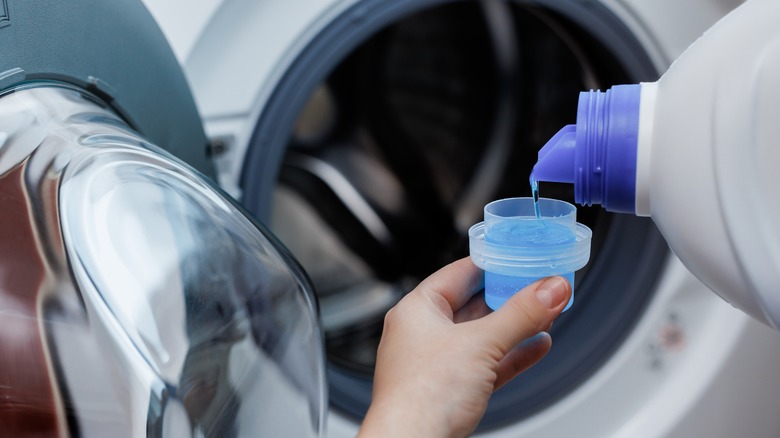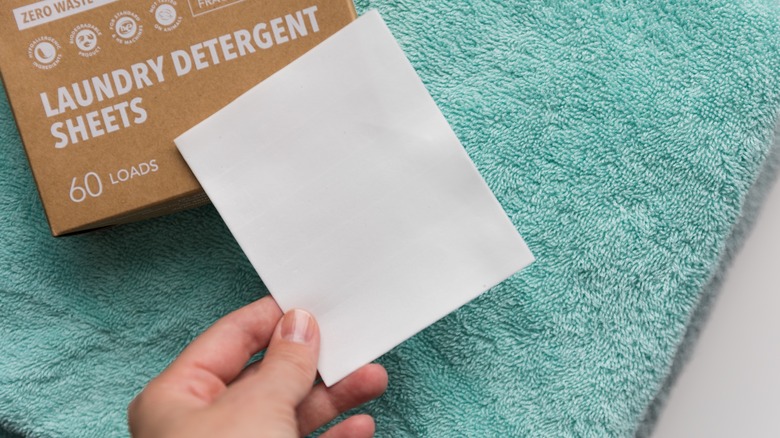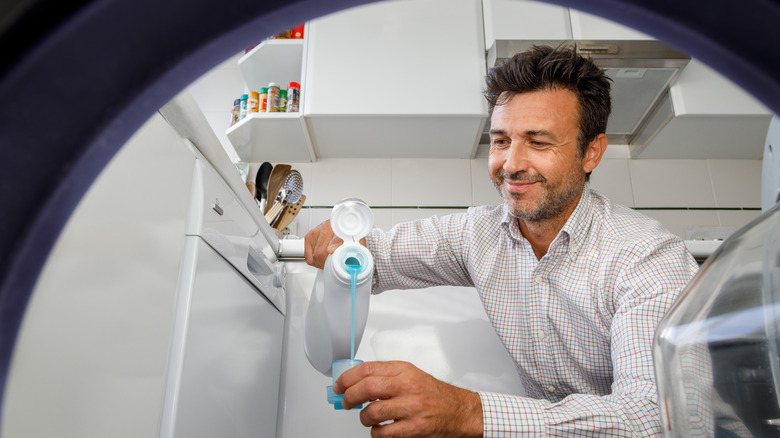Laundry Detergent Sheets Vs. Liquid Detergents: Which Are Better To Use?
Because of the time and energy required for washing clothes, you want to make sure you are receiving the perfect results every time. Beyond worrying about properly loading the washing machine and selecting the correct water temperature, selecting the proper format for your laundry detergent is a key consideration. Two potential formats worth considering are liquid-less laundry detergent sheets and liquid detergent. Determining which is better for your needs depends on how you wash clothing and what factors are most important to you.
Liquid and powder used as laundry detergent have been around since the 1950s, which was around the time washing machines began regularly appearing in homes. These are proven formats for cleaning clothes efficiently, undergoing various improvements over the years to make them more efficient. The liquid-less sheets, meanwhile, have been around for a couple of decades. They provide a highly concentrated cleaning option that doesn't include unwanted ingredients. If you are considering a switch to liquid-less laundry detergent sheets, you may have heard about their eco-friendly packaging. Compared to other options, the laundry squares ship in a small package that doesn't generate as much waste as a plastic bottle.
Still, liquid laundry products are a trusted option for many people. You may be leery of switching, especially since liquid options have attempted to become more eco-friendly in recent years, using recycled plastics in the bottles and removing many ingredients that don't biodegrade after usage.
Do laundry detergent sheets clean as well as liquids?
Although it's great to have a more eco-friendly product and a product that you can store indefinitely in the same cardboard packaging in which it ships, the key is whether the sheets actually clean as well as liquids. After all, there's no point in using an eco-friendly product if you have to run the clothing through several cycles to fully clean it, thereby creating more waste water and using more energy.
Unfortunately, one of the hidden downsides to using laundry detergent sheets is that they don't have the same cleaning power as liquid detergents. "In fact, they had lower performance as a group than our lowest-performing liquid," according to Rich Handel, Consumer Reports' laundry expert, whose organization ran a series of tests on these two formats for cleaning clothing. Liquid cleaners especially outperformed the squares in terms of battling tough stains involving oils and coffee, but the overall cleaning comparisons were not close, either.
Even with some of the drawbacks of using laundry detergent squares on clothing that have tough stains, your basket of laundry may rarely have such stains. If so, you could consider making use of the sheets, taking advantage of the convenience of using them with no measuring required. You can use half a sheet for small loads, one sheet for a normal load, and two sheets for a large load. This is far simpler — and far less messy — than measuring liquid.
Benefits of using liquid for laundry
Liquid detergent has plenty of benefits beyond extra cleaning power. It works well for pretreating stubborn stains. You can apply a splash directly onto the toughest stains on the clothing, which can help to remove them completely during a single washing cycle. The format used with sheets simply doesn't work for direct applications.
Liquid is a great choice for rural consumers who may have a septic system or a high level of hard water. Liquid doesn't interact with the minerals found in hard water as much as other formats for detergent, like sheets, which means you have lower amounts of residue left inside the washing machine. Some sheets struggle to dissolve completely during the wash cycle, which could cause an issue with some septic systems.
One of the biggest reasons liquids tend to clean better than sheets is because of the cleaning enzymes they include in the formula. Certain enzymes, such as hydrolases, are able to efficiently remove stains related to proteins, oils, blood, and fats. Additionally, they contain surfactants that work in conjunction with the water that the washing machine adds to your load of clothing to loose dirt and lift it away from the clothing fibers. Detergent sheets' concentrated formulas make less use of enzymes and surfactants for cleaning.


